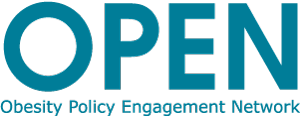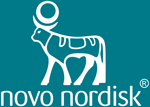On Monday, 10 January 2022, the MEP Interest Group for Obesity and Health System Resilience co-hosted a joint eMeeting with the Obesity Policy Engagement Network (OPEN-EU) -which clearly highlighted the need to take efforts to build Resilience to the next level and enable Obesity data to be meaningfully included following the noncommunicable disease (NCD) framework in the planning, implementation and infrastructure of the upcoming European Health Data Space legislative proposal. Below we highlight the collective thoughts of the meeting. Individual statements and discussions can be viewed in the recording and via Twitter using #EHDS and #ObesityPolicy
Key insights from panel 1: Connecting the Data Dots 2.0
Panellists shared their perspectives as data generators, users and/or consumers, in terms of how they would like obesity to be included in the European Health Data Space. What came out of the discussion was the clear need for:
1. Comprehensive data – in terms of type of data and geographical scope:
- Possibility to link data with other datasets: Have a data framework and processes which allow data on obesity onset, as well as disease progression and health outcomes to be collected which is comparable with other national and international data collection frameworks – such as OECD’s Health at a Glance, the European Commission’s own EU State of Health Report and related European Semester cycles on health and resilience chapters.
- Standardised and regulated data to effectively inform policymakers and accurately shape health policy
2. Data quality, GDPR harmonisation and data flow both within and across borders
Data users as well as generators called for high quality and consistent data collection on obesity beyond prevalence, but rather through the lens of obesity as an NCD in line with the European Commission’s Briefing. This would mean, for instance including collection of data for early diagnosis beyond BMI, and actually taking into account body composition and biomarkers which would then allow meaningful insights for primary as well as secondary use of data including for policy formation. It would also mean following up on the prognosis and the impact on quality of life, what care is received and the related cost. Importantly, what is the cost of not addressing obesity within an NCD framework?
Policymakers do not have to start with a blank sheet. Jennifer Lyn Baker – EASO Executive Committee Member and Epidemiologist with specialisations in obesity and cancer and representing the 20 000 obesity health and research professionals’ community – made a strong case for taking the way in which data on cancer has been structured, collected and harnessed in the framework of National NCD Plans and beyond. Of note to consider for obesity would be Registries and cross border sharing. Examples such as the Nordic Cancer Registries provide a good starting point for inspiration on how those for obesity could be structured and implemented.
For cross border collection and ease of dataflow, EUROSTAT, and OECD can be very useful for economic and statistical data; whereas WHO can be very useful for medical data harmonisation.
3. A common vocabulary and appropriate use by all in their own language
The point was repeatedly made and particularly by Federico Moya the Executive Director of the National Híspalis Bariatric and Obesity Association and Patient Representative for OPEN Spain where 21.6% of adults are living with obesity. A further 39.3% have pre-obesity, meaning more than 60% of the population are affected by pre-obesity or obesity. This number is expected to rise by another 10% across the population by 2030 at a cost of €2000 million euro per annum...
Due to a lack of state-of-the-art data and evidence being available in Spanish (and other non-English languages) there is an engrained systemic bias against treating obesity as the NCD that it is. Instead, policymakers are tasked with designing policy interventions with old knowledge. Policy implementors at national and regional level do not have easy access to knowledge sharing of innovative solutions and people living with obesity are in effect denied care options or even understanding of their needs within the healthcare system by many.
In addition, it was stressed by OECD that one of the main challenges of harmonisation and implementation is that there is consensus on definition and scope of words, phrases, concepts and usage thereof.
4. The inclusion of people living with obesity in all processes concerning data to ensure it benefits them first and foremost.
5. From a policymaker perspective, it is essential to have an EHDS which allows meaningful tracking of the Recovery and Resilience mechanism and the upcoming reversion to the European Semester cycle. Given that obesity is a chronic relapsing disease, it is not acceptable to stop at measuring only prevalence, we need to be able to generate and consult evidence for dossiers such as the Pharma strategy like we can already do so with other major NCDs such as cancer, cardiovascular diseases and diabetes.
How can we expect the Union to reach our competitiveness potential if we are not even able to pose the right questions? We need an EHDS that addresses obesity as a chronic disease along the life course, not least to allow us to make informed policy decisions for the pharmaceutical strategy and ensure that Europeans have access to the best medicines possible and that the Union attracts and retains the best life-science research-based companies.
For policymakers, it is imperative that the EHDS not only provides meaningful data for clinicians, researchers and patients, but for policymakers, it needs to be able to show not only the disparities between countries, but why this is occurring from a clinical and systemic perspective.
Key insights from panel 2: What’s next for Obesity and EHDS at the European Parliament: A Call to Action.
Building on the reflections of the previous session, Dr Kremlin Wickramasinghe from WHO Europe Region reiterated the need to not reinvent the wheel and instead to learn from existing initiatives and data frameworks but to build out as necessary in order to gather meaningful data along the full continuum of obesity as an NCD along the life course. There was a clear call for measured data to be integrated into the Health Surveys and to include within formal patient reported outcomes rather than only “self-reported” health data.
Height and weight measurement is just not enough. WHO encourages the EU institutions to look beyond EU borders for examples of where innovative surveillance systems on obesity along the life course is being successfully implemented.
For example, with the WHO STEPWise project in non-EU Eastern European countries, biomarkers for early diagnosis and monitoring of adult obesity are already in place.
Moving forwards, the WHO sees the EHDS as an opportunity to ensure that data collection frameworks around obesity can not only take a holistic physical environmental approach, but also address access to treatment and long-term management along the life course for people living with obesity. Such a framework would enable meaningful cross border comparisons and in country informed and evidence-driven policy making interventions above and beyond a snapshot of prevalence.
Data saves lives was the very clear message from Birgit Bauer, Digital expert and Patient Advocate as well as member of the TEHDAS Stakeholder Group. She emphasised that as a person living with a chronic disease there is a need for data to inform about the disease itself and therefore to achieve better treatment, care and disease management. The mere fact of having an NCD framework for health data allows patients to access more information about their disease and develop long term treatment and management strategies which may also involve self-management beyond the clinical care they will receive.
Knowing more about one’s disease will benefit our ability to be more resilient as a society because our families, colleagues and employers will all be more knowledgeable about the real disease. In this way, systemic bias’s (including weight stigma and weight bias) can be minimised
Birgit Bauer, MEP Susana Solís Pérez and MEP Pernille Weiss all stated the importance of policymakers transferring knowledge to European Commissioners to shift words to actions.







